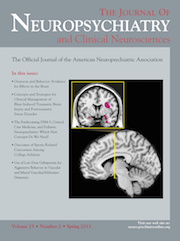Outcomes of Sport-Related Concussion Among College Athletes
Abstract
The author collected and analyzed data for all student-athletes diagnosed with concussion between 1998 and 2011. Outcome measurements were post-concussion symptom duration, time interval until return-to-play, and clinical outcomes self-reported by athletes and by athlete’s parent/guardian 1 year post-injury. A total of 98 concussions occurred in 95 student athletes among a cohort averaging 350 athletes competing yearly. Athletes were managed according to expert-consensus guidelines. Forty-one (43%) of the athletes had experienced a previously-diagnosed concussion (range: 1–3). Eight athletes (10.4%), retired from their sport for concussion-related issues. Six athletes (6.3%) with completed follow-up experienced memory and/or concentration impairment(s) lasting more than 1 year.



